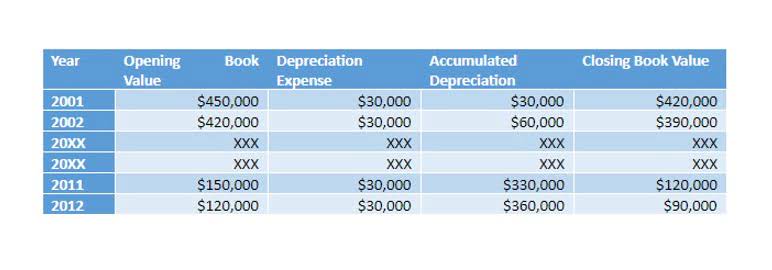
Another essential component of medical practice bookkeeping is billing and reimbursement. The administration of claims for insurance along with timely and accurate billing ensures steady revenue flow. To help your private medical practice or independent doctor’s office provide the best patient care without losing money, we’ve put together a list of helpful tips for better bookkeeping practices. This includes creating and when performing bookkeeping procedures for a medical office, it is important to interpreting critical financial documents such as balance sheets, income statements, and cash flow statements. These documents provide a comprehensive view of the practice’s financial health, showing assets, liabilities, revenues, expenses, and cash flow. Medical practices benefit from cash accounting, which PPMC staff can handle well.Professionals can streamline reporting by collecting data from multiple sources.
Accurate Scheduling for Payables and Receivables
This type of software not only allows operators to accurately record and track daily hours, paid time off, holiday pay, and overtime hours, it also easily prepares and dispenses staff payments. A skilled bookkeeper can help you set up your payroll management system and process changes such as salaries or deductions so that you can spend more time focused on patient care. The world of bookkeeping for doctors and medical practices is rapidly changing.
Knowing About Privacy Policies for Medical Practices in Australia

For doctors and other medical workers, specialized bookkeeping systems like QuickBooks and Xero are effective allies. They provide effective solutions for handling finances, payroll services, and tax compliance. These technologies are extremely useful since they can be integrated with practice management software and have their chart of accounts customized to suit the needs of the healthcare industry. While patient care continues to be at the forefront of medicine, efficient bookkeeping serves as the foundation for the financial success and stability of medical operations.
Consider the size and complexity of the practice
If you decide to apply for a product or service through our website you will be dealing directly with the provider of that product or service and not with us. This websites contains advertising, sponsored content and commissioned referrals. You can hire freelancers to come in once every few weeks to update your books or provide you with the needed reports. By requesting information, I consent, without obligation, to be contacted by PCI Health via email, telephone, and text, using automated technology, at any telephone number and email address that I provide.
HIPAA compliance is a necessity for both the medical practice and the patient. Uplinq real-time bookkeeping and experienced accountants help hundreds of businesses stay on top of their financials and tax obligations. 18.4 Describe the logistics of accepting, endorsing, and depositing checks from patients and insurance companies. If you’re not keeping accurate track of your monies coming in versus your monies going out, causing your gas or electric company to stop your service, patients aren’t going to be happy. To make this concept easier to understand, imagine that you own a store that sells furniture. By default, then, you need to develop a way to create invoices for the items your customers want to purchase.

Bookkeeping for Doctors and Medical Professionals:
The revenue-generating processes of a medical practice include billing and reimbursement. Billing that is accurate and timely guarantees that patients are charged properly for the services provided and that insurance claims are submitted on time. Billing mistakes or inaccuracies can result in delayed payments, refused claims, and revenue loss. When considering the best way to handle bookkeeping for medical practices, it’s important to weigh the cost vs. benefit.
- Medical File Management – the management of patient records, accounting records, contracts and business-related documentation.
- While these statements are not required to operate a medical practice, they will provide you with some insights into your finances.
- Medical practices must constantly train their staff to keep up with the latest coding updates and revisions.
- However, this information can become much more valuable when you’re able to gain insights and additional information from it.
- We understand that bookkeeping practices are not the same across all industries.
- While most medical professionals enter the healthcare field driven by passion for delivering quality patient care, every practice must also manage its finances wisely to operate optimally.
Medical practice management books are great for keeping an eye on the pulse of your business’ financial health. And that’s why getting into the habit of creating a schedule for profit and loss statements is beneficial. Start a rewarding and challenging career as a medical office assistant today and start working toward a better tomorrow. Matching supply and demand can be a complicated process for your medical practice.
- It is essential medical practices have a clear understanding of their daily finances to support their ability to provide quality care to patients.
- If you can provide a list of expenses, no matter how small, to your bookkeeper, he or she will be able to provide a breakdown of the money that you spend based on the period that you want.
- Read on to transform how your business approaches its bookkeeping and finances with bookkeeping for medical practices.
- This is where Uplinq's specialized medical practice bookkeeping services enable you to effortlessly outsource your accounting needs to dedicated experts.
- Integrating advanced technology solutions like EHRs and accounting software can streamline accounting processes but also introduces challenges in maintaining data security.
- A bookkeeping pro knows how to document and track all of the financial data you’ll need to deliver to your CPA at tax time, for example.
- Regular internal and external audits are essential to identify and address potential financial discrepancies and risks.
- However, your medical practice is still a business, and you want it to be profitable.
- Operating a private practice can put strain on the practicing physician, as they need to balance...
- It can also provide you with data that you can use when making minor and major decisions on how you would run your hospital or private practice.
- Outsourcing accounting, bookkeeping, and medical billing to professionals can benefit medical practices.
- You should always seek qualified independent advice before engaging any services or following any general advice as it is not tailored to your circumstances.
- A common payment term is Net 30 days, where the customer or patient has 30 days from the date of service or delivery to pay the invoice.
The main purpose of any business, which is why you have a medical practice in the first place, is to know if you are actually making money. Getting regular revenue is not a good enough sign, though, as expenses may be eating all of these up. Some, like private doctors, have part-time ones that they see about once or twice a month. Regardless, having someone maintain your books for you can be beneficial, and here are some of the advantages that you can get if you have up to date and accurate books that you can review. As a physician or other medical worker, you have a lot of important responsibilities and bookkeeping isn’t always going to be top of mind.

Compliance with healthcare regulations is a moving target due to frequent legislative changes. Non-compliance can result in hefty fines, legal challenges, and damage to the practice’s reputation. Accounting for medical practices is a specialized field that combines fiscal responsibility with healthcare service.
